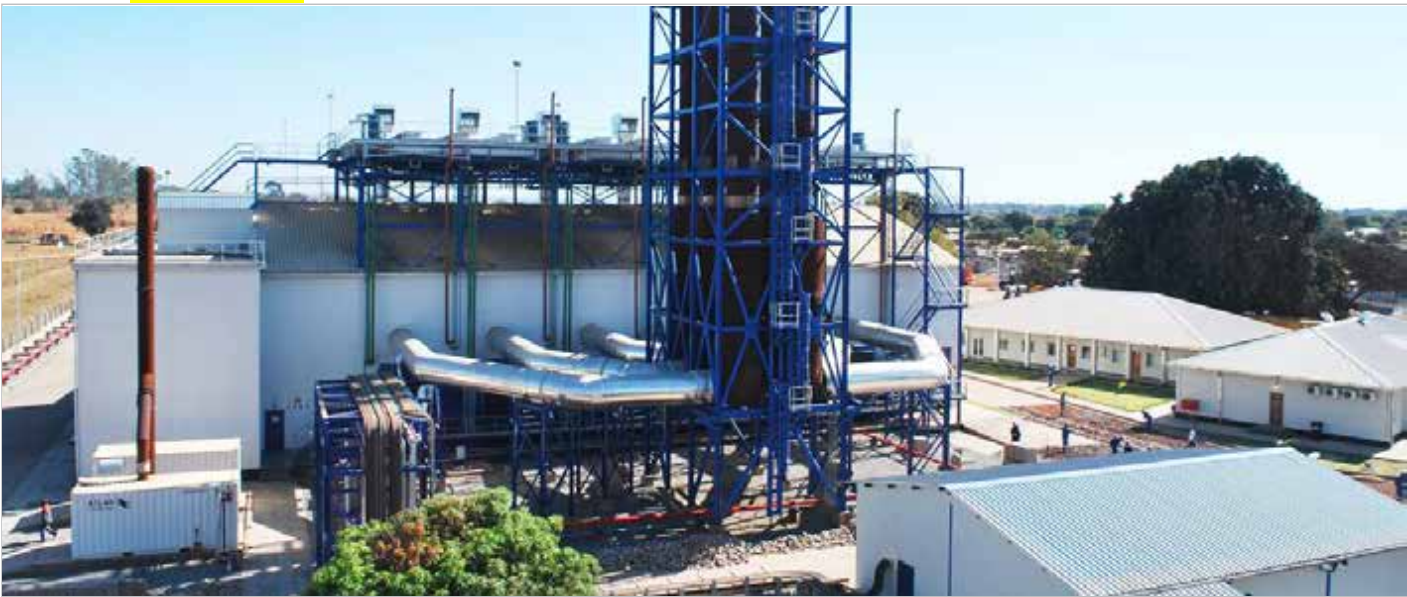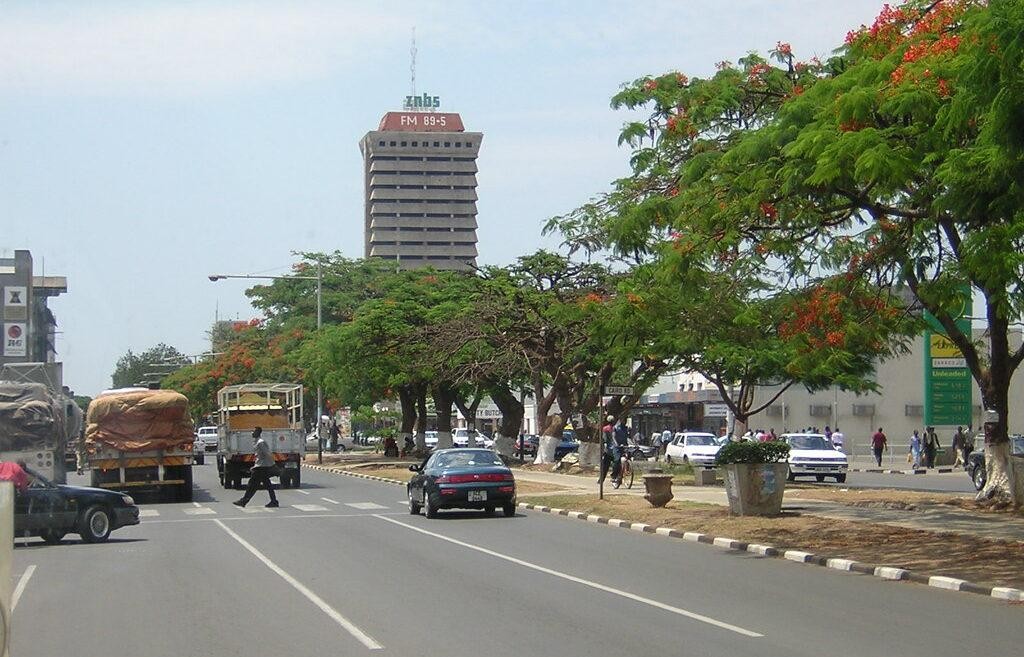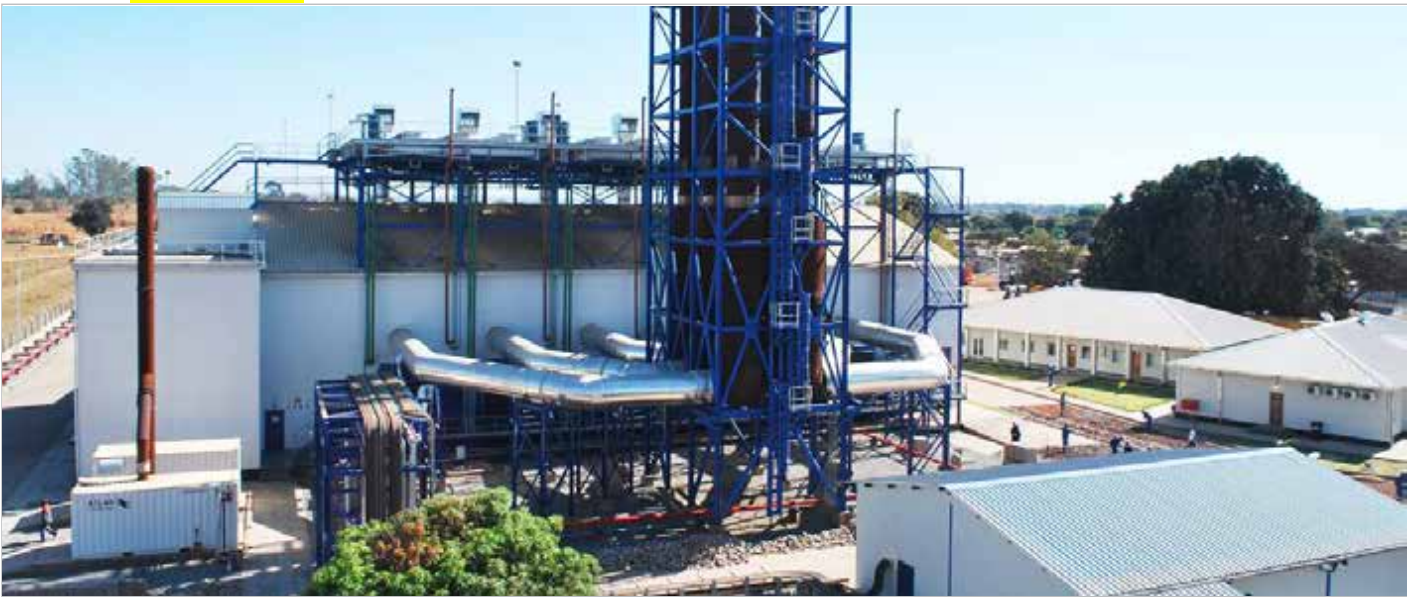Eight-Five Percent Renewable isn’t Good Enough
30 JUNE 2024 : 12:00AM
Gerald Hamuyayi
Zambia's power crisis has reached a boiling point with daily blackouts lasting over 12 hours, the country's economy is bleeding millions. Despite investing heavily in green energy, Zambia's reliance on hydroelectric power has made it vulnerable to the whims of the weather. But there's a glimmer of hope - Ndola Energy Power has just re-energised its 105 MW thermal power plant in the Copperbelt, offering a much-needed lifeline to a nation in the dark.
The El Niño-induced crisis has plunged Zambia into darkness, prompting a paradigm shift in the nation's thinking. As citizens and energy institutions ponder for immediate solutions, they are forced to consider alternative energy sources to diversify the country's energy portfolio. This has led to the exploration of unpopular, yet rational options beyond hydro power, including fuel, coal, thermal, and nuclear energy.
In spite of Zambia’s abundant fossil fuels such as coal and uranium, enough to quash its energy deficit if properly harnessed, the nation has not adequately explored the resource alongside the renewable energy sources. Notwithstanding nuclear energy’s potential risks, it has been proven to be efficient, reliable, and relatively low in emissions in engineering cycles. The fossil fuels have played a significant role in powering first-world economies like the US and China, as well as emerging markets like South Africa, accounting for over 50% of their energy portfolios.
In sharp contrast to Zambia's electricity mix, which has over 86% of its installed capacity in renewable sources, with a significant 83% of the capacity being hydro power, according to the Energy Regulation Board's 2023 report. Despite the noteworthy achievements on the renewable energy frontier, the power deficit has not only devalued the gains made in bolstering investor confidence but also had far-reaching consequences for livelihoods. As companies cut back on production, jobs are lost, incomes plummet, health risks increase, and consumer confidence dwindles, potentially leading to economic stagnation. The concentration risk posed by hydro power has exposed our economy to weather shocks, underscoring the need for a much more diversified energy portfolio.

Ndola Energy Company curtesy of Energy Regulation Board
The energy crisis has become a hot potato for the government and energy stakeholder, as they scramble to explore alternative power sources previously untapped. The private sector has also risen to the challenge, taking bold steps to mitigate the crisis and its far-reaching consequences. In a recent statement, the Ministry of Energy announced short-term measures to address the crisis, including the importation of 188MW of power and the reduction of power exports by 160MW through the state utility ZESCO. Additionally, the development of a 100MW solar PV project in Chisamba is expected to come online by the end of 2024. As part of its efforts to address the power supply shortage, the Zambian government has supported the revitalisation of the 105MW thermal-powered Ndola Energy Company Limited on the Copperbelt, a company that was forced to cease operations due to the shutdown of Indeni Oil Refinery. Furthermore, the government is exploring long-term solutions, including pipeline developments in hydro, coal, and solar sources in Luapula, Mamba, and through the GET-FIT initiatives, respectively.
The Energy regulation Board is on its wheels carrying out its mandate of sensitising consumers and the public on efficient use of electricity and dangers arising from various energy sources. Furthermore, the regulator has been mobilising a battalion of key stakeholders in the energy value chains, the financial institution for an Energy INDABA crisis to be held at the Mulungushi Conference Centre themed Financing Sustain bale Energy Solutions to Mitigate Crisis.
The Energy Regulation Board is on its wheels carrying out its mandate, sensitising consumers and the public on the efficient use of electricity and the dangers associated with various energy sources. Further, the regulator has mobilised a battalion of key stakeholders in the energy value chain, including government, power producers, financial institutions, and civil society groups for an Energy Crisis INDABA to be held at the Mulungushi Conference Centre tomorrow, 21 June, and themed; Financing Sustainable Energy Solutions to Mitigate Crisis. The event will be graced by Zambia's President, Hakainde Hichilema, and aims to bring together experts and stakeholders to discuss solutions to the current energy crisis.

Source: Energy Regulation Board
The harsh reality is that we cannot run an economy and provide universal and affordable energy using intermittent wind, solar and moody hydro resources nor can we produce and afford enough batteries to back-up the grid when the wind does blow or the sun does not shine. Having an energy balance with significant amounts of affordable, reliable and dispatchable fossil and nuclear generation is critical if we are to enhance the quality of a Zambian life.
Featured Image
2024-06-30
Category: Economic & Business Sectors


